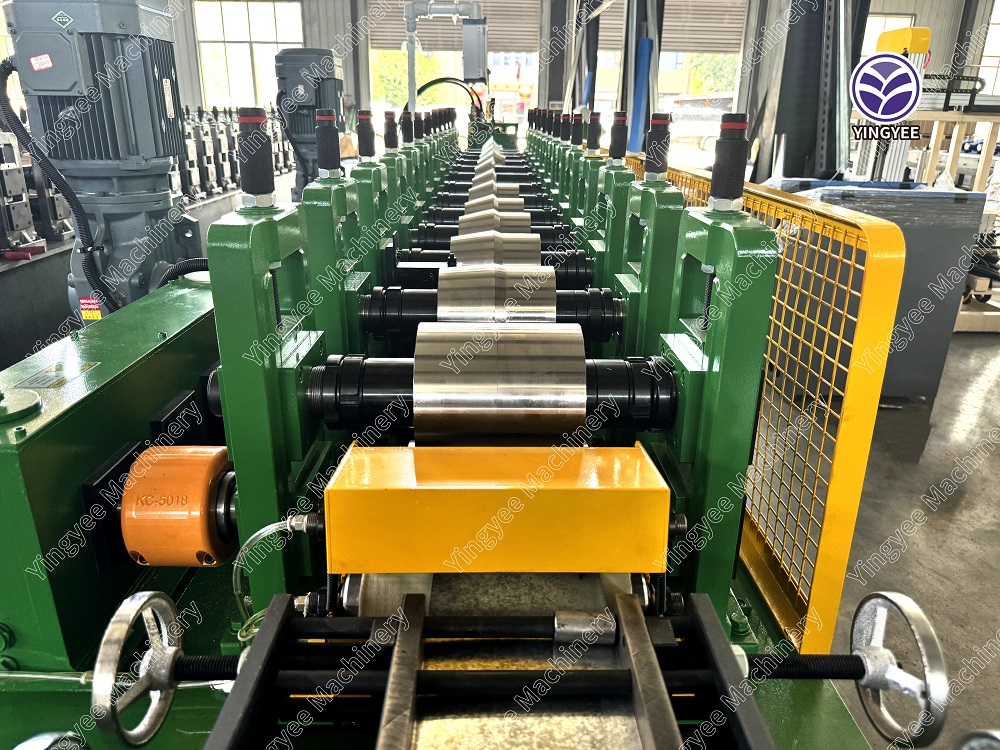
Understanding Roofing Tile Machines A Modern Solution for Durable Roofs
In the construction industry, roofing is a critical aspect that significantly affects the durability and aesthetic appeal of buildings. With the increasing demand for high-quality roofing materials, roofing tile machines have emerged as essential tools in the manufacturing process. This article delves into the intricacies of roofing tile machines, their benefits, and the innovations they bring to the roofing industry.
What is a Roofing Tile Machine?
A roofing tile machine is an automated piece of equipment designed to produce roofing tiles from raw materials like clay, concrete, or metal. These machines come in various configurations, including manual, semi-automatic, and fully automatic systems, allowing manufacturers to choose options that best suit their production needs.
The production process begins with the raw materials being mixed and shaped into the desired tile form. Once shaped, the tiles undergo a curing process, where they are hardened through drying or firing at high temperatures. This ensures that the tiles acquire the necessary strength and durability to withstand environmental stresses.
Types of Roofing Tile Machines
There are primarily two types of roofing tile machines - clay tile machines and concrete tile machines
.1. Clay Tile Machines These machines are designed to process clay into various tile shapes. Clay tiles are renowned for their excellent insulation properties and aesthetic appeal. The machines often feature high-pressure extrusion systems that mold the clay into precise shapes, followed by a drying and firing process to achieve the final product.
2. Concrete Tile Machines These machines utilize concrete as the main raw material. They are designed to produce interlocking tiles, flat tiles, or patterned tiles, catering to different architectural styles. Concrete tile machines are known for their efficiency and ability to produce large quantities of uniform tiles.

Benefits of Using Roofing Tile Machines
1. Efficiency Roofing tile machines significantly increase production efficiency. They can produce a large number of tiles in a fraction of the time it would take to make them manually. This efficiency is crucial in meeting the demands of a competitive market.
2. Quality Control Automated machines can maintain consistent quality across all tiles produced. This minimizes variations in size and shape, ensuring that the final product meets industry standards.
3. Cost-Effective Although the initial investment in roofing tile machines can be substantial, they lead to lower production costs over time. The reduction in labor costs and the ability to utilize raw materials efficiently contribute to long-term savings.
4. Customization Many modern roofing tile machines allow for customization in design and color. Manufacturers can produce tiles that cater to specific market needs, enabling them to stand out among competitors.
5. Sustainability With an increasing focus on sustainable construction, roofing tile machines can utilize recycled materials and reduce waste during production. This aligns with global efforts towards environmentally friendly building practices.
Conclusion
As the construction industry continues to evolve, roofing tile machines play a pivotal role in shaping the future of roofing materials. Their ability to produce high-quality, durable, and aesthetically pleasing tiles makes them indispensable to manufacturers. By investing in these advanced machines, businesses can enhance their productivity, meet market demand, and contribute to sustainability efforts within the industry.
In conclusion, whether you are a producer of roofing materials or a builder looking for quality solutions, understanding the functions and benefits of roofing tile machines can lead to informed decisions and successful outcomes. With continual advancements in technology, the future of roofing seems promising, ensuring that structures are not only durable and functional but also visually appealing.